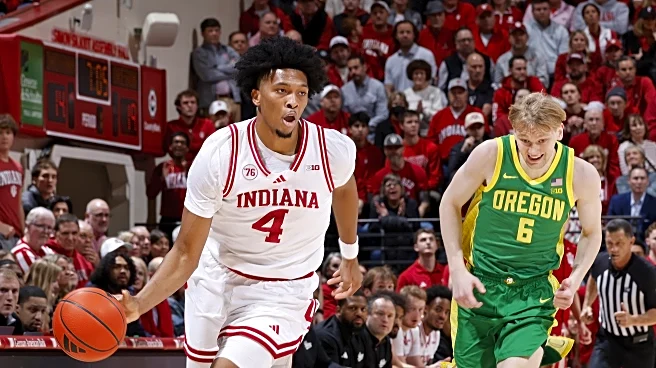What's Happening?
Frank Wilson has been named the interim head coach of LSU following the firing of Brian Kelly, who was let go despite a substantial buyout of over $53 million. Wilson, a New Orleans native and a prominent
figure in LSU football, steps into the role with a wealth of experience, having previously served as Associate Head Coach and Running Backs Coach under Les Miles from 2010 to 2015. Known for his recruiting prowess, Wilson has been instrumental in bringing top talent to LSU, including NFL stars like Leonard Fournette and Odell Beckham Jr. His appointment comes at a critical juncture for the team, as they face a challenging schedule, including a rivalry game against Alabama.
Why It's Important?
Wilson's appointment is significant as it highlights the volatile nature of coaching positions in college football, particularly within the SEC. His deep ties to Louisiana and proven track record in recruiting are crucial for stabilizing the program during this transition. The decision to appoint Wilson underscores LSU's commitment to maintaining strong recruiting connections and leveraging local talent. The outcome of Wilson's interim tenure could influence the search for a permanent head coach and impact the team's performance in the remaining season.
What's Next?
Wilson's immediate challenge is to lead LSU through a demanding schedule, starting with a game against Alabama. His performance as interim head coach will be closely watched, as it may affect his candidacy for the permanent position. The team's ability to maintain competitive play and secure wins will be pivotal in determining the future direction of the program. Additionally, LSU's administration will likely begin the search for a permanent head coach, considering Wilson's impact and the team's performance under his leadership.
Beyond the Headlines
Wilson's appointment also raises questions about the financial implications of coaching changes in college sports, given the substantial buyout involved in Kelly's departure. The decision reflects broader trends in college athletics, where performance and recruiting success are increasingly prioritized over contractual obligations. This move may set a precedent for other programs facing similar decisions, highlighting the importance of adaptability and strategic leadership in maintaining competitive edge.










